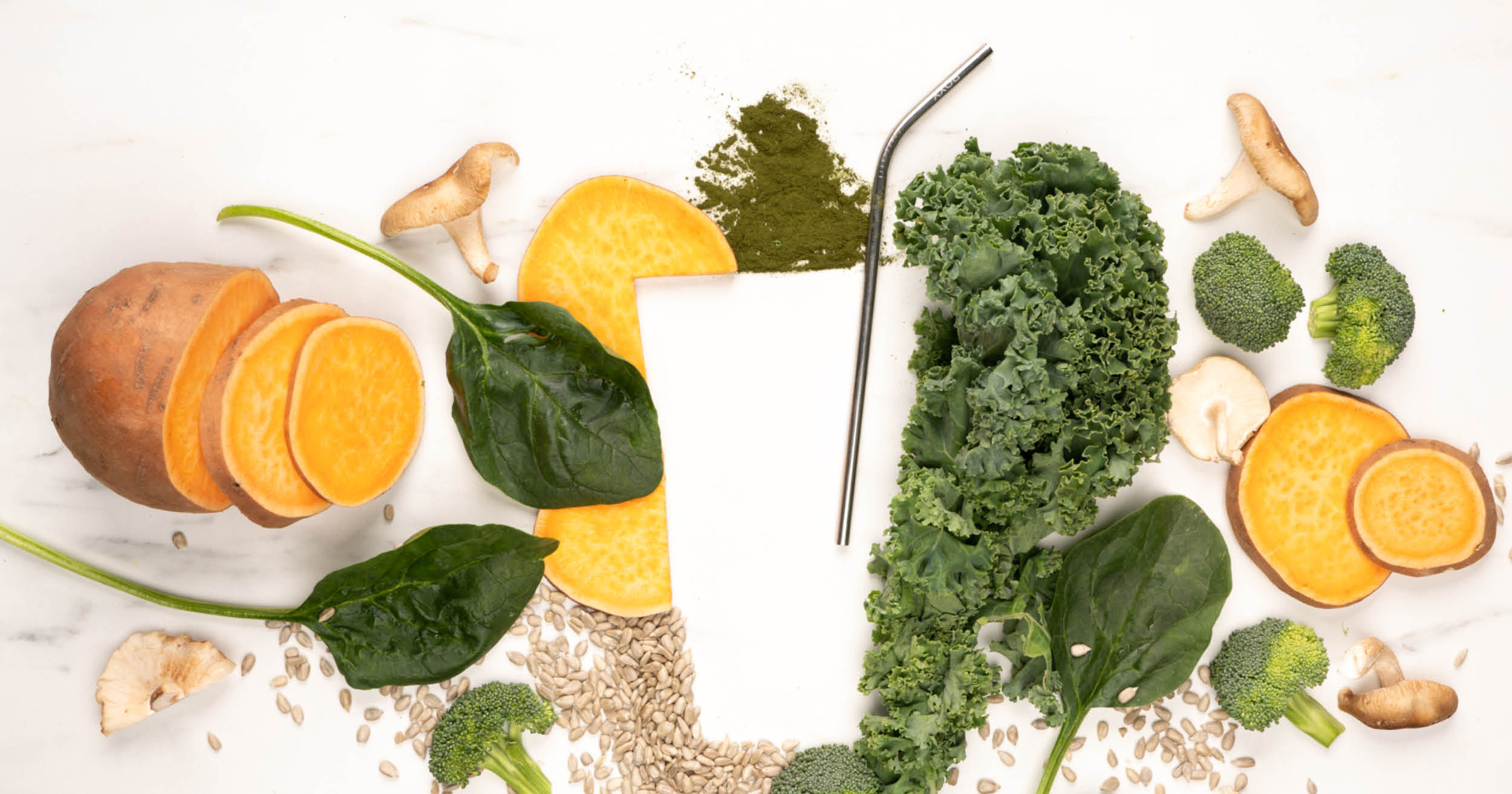Ever find yourself looking at the Whole Blend IsaLean® Shake labels wondering where the vitamins come from? Is the folate from folic acid? Is the vitamin B12 methylated?
Most of the time when you look at a food label, you see the source of the ingredient written right next to the vitamin or mineral. Although the Whole Blend IsaLean Shake labels don’t show this information, you can rest assured knowing the vitamin blend comes from an array of organic whole vegetables.
Whole food vitamins for a whole range of vitamers
For years, dietitians and health professionals have recommended a healthy, well-balanced diet that is rich in fruits and vegetables. A varied diet that includes many different plant-based foods, whole grains, and lean proteins delivers nutrients in their naturally occurring forms.
Getting a full spectrum of vitamers and phytonutrients helps ensure you receive the benefits of the different forms of each vitamin and plant compounds that promote wellbeing in many ways. Because of the important role they play in supporting good health, you’ll want to make sure you are getting your phytonutrients and vitamins from whole foods every day.
Whole Blend is packed with whole food nutrition
Whole Blend IsaLean Shakes and Bar contain nutrient-dense ingredients and plant-based vitamins and minerals from whole vegetables and fruits that provide a wide range of vitamers and phytonutrients just as they are found freshly picked in nature.
- Sweet potatoes: Providing vitamin A, these bright orange tubers date back to the 15th century and are naturally rich in beta carotene and other carotenoids (1).
- Sunflower seed: These small but mighty seeds from large yellow sunflowers are packed with healthy unsaturated fats, micronutrients, and phytochemicals (2). Sunflower seed provides vitamin B1, vitamin B3, vitamin B5, vitamin B7, and selenium in Whole Blend IsaLean Shake and Bar.
- Spinach: A dark leafy green superfood providing vitamins B2 and B6, folate, vitamin E, and iron.
- Chlorella: First documented over 2,000 years ago and used across the globe in food dishes, this bright green freshwater microalgae contributes the vitamin B12 (3).
- Broccoli: Related to cauliflower, this deep green cruciferous floret contributes vitamin C and chromium.
- Maitake mushroom: Also called the “hen of the woods” due to its feather-like top, maitake mushroom contains a large number of polysaccharides, including beta-glucan, and has a wide range of health benefits (4). This adaptogen supplies vitamin D2 to the Whole Blend products.
- Shiitake mushroom: Similar to maitake mushrooms, shiitake mushrooms have many beneficial bioactive compounds and have been cultivated for over 100 years (4). They provide vitamin B5 and selenium.
- Kale: Much like Brussels sprouts and broccoli, kale is an extensively studied green leafy vegetable from the cruciferous family (5). It is one of the most nutrient-dense vegetables available and provides vitamin K1 and copper.
- Kelp: Also known as seaweed, kelp is a saltwater algae that provides iodine.
- Pumpkin: A bright orange winter squash most popular at Halloween and Thanksgiving, pumpkin is not only delicious but also nutritious with an extensive nutritional profile full of vitamins, minerals, and phytonutrients. Pumpkin provides manganese, molybdenum, and zinc to the Whole Blend formulations.
When asked where the vitamins and minerals come from in Whole Blend IsaLean Shake, the answer is simple — nature. Your vitamins and minerals come from whole food sources just as nature intended, providing not only essential nutrients but also a variety of vitamers and cofactors beneficial to good health.
References
- Burri, B. J. Evaluating sweet potato as an intervention food to prevent vitamin A deficiency. Comprehensive Reviews in Food Science and Food Safety 2011;10(2):118-130.
- Pal, D. (2011). Sunflower (Helianthus annuus L.) Seeds in health and nutrition. In Nuts and Seeds in Health and Disease Prevention (pp. 1097-1105). Academic Press.
- Rani, K., Sandal, N., & Sahoo, P. K. A comprehensive review on chlorella-its composition, health benefits, market and regulatory scenario. The Pharma Innovation Journal 2018;7(7):584-589.
- Saljoughian, M., & Pharm, D. Adaptogenic or medicinal mushrooms. US Pharm 2009;34(4):136.
- Migliozzi M, Thavarajah D, et. al. Lentil and kale: complementary nutrient-rich whole food sources to combat micronutrient and calorie malnutrition. Nutrients 2015; 7(11):9285-9298.





